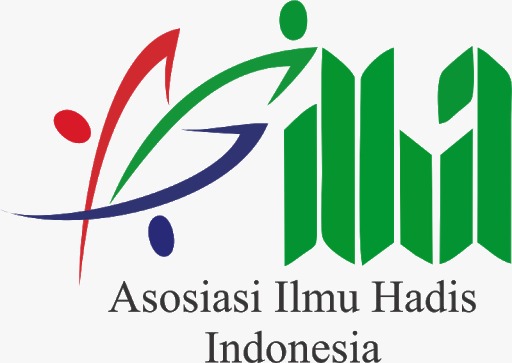Metodologi Pemahaman Hadis Abad XXI: Tradisi dan Inovasi dalam Studi Hadis Kawasan
DOI:
https://doi.org/10.32506/johs.v5i2-05Keywords:
Hadith Thought, Tradition, InnovationAbstract
The transmission of hadith understanding in Indonesia is often perceived as rigid and authoritative. However, beneath this perception lies a complex methodological dynamic. The interplay between religious authority, local traditions, and global thought provides a space for critical engagement. This study aims to identify and analyze the methodological approaches applied in hadith studies in 21st-century Indonesia and propose future directions for methodological development. Two key issues are addressed: first, how contextual approaches are applied in the methodology of hadith interpretation by Indonesian scholars in the 21st century; and second, what criteria are employed by hadith experts in evaluating narrations within a modern context. This research adopts a qualitative approach through a library-based study. Data analysis includes literature review, textual analysis of hadith and relevant scholarly works, interpretation within socio-historical contexts, and formulation of conclusions and recommendations based on the findings. The study reveals that early scholars such as al-Raniri and al-Maqassari, along with modern figures like Muhammad Syuhudi Ismail, Kamaruddin Amin, and Tengku Muhammad Hasbi Ash-Shiddieqy, highlight the significance of flexibility and critical analysis in hadith comprehension. Moreover, scholars such as Ali Mustafa Ya’qub and Kamaruddin Amin emphasize the synergy between tradition and innovation, which fosters a more inclusive understanding of hadith in the Indonesian context. The findings of this research are expected to enrich the academic discourse in hadith studies by illustrating how contextual approaches and modern criteria for hadith criticism can be adapted to address contemporary challenges.
Downloads
References
’Itr, N. (1994). Ulūm al-Ḥadīth. Rosda Karya.
Ahmad, L. O. I., Nasir, S. M., & Ilyas, A. (2021). Kritik Atas Kritik Kamaruddin Amin: (Menguji Kembali Keakuratan) Metode Kritik Hadis. Ihyaussunnah: Journal of Ulumul Hadith and Living Sunnah, 1(2). https://doi.org/https://doi.org/10.24252/ihyaussunnah.v1i2.29453
Al-Razi. (1952). Kitāb al-Jarḥ wa al-Ta‟dīl.
Amin, K. (2009). Menguji Kembali Keakuratan Metode Kritik Hadis. Mizan Publika.
Ash-Shiddieqy, T. M. H. (1993). Sejarah Ilmu Hadis. Bulan Bintang.
Azra, A. (1994). Jaringan Ulama Timur Tengah dan Kepulauan Nusantara Abad XVII dan XVIII: Akar Pembaruan Islam Indonesia. Penerbit Mizan.
Berner, C. (1995). La Philosophie de Schleiermacher: Herméneutique, Dialectique, Éthique. Cerf.
Chirri, N. El. (2017). Methodology of Islamic Studies in The East and in The West: A Comparative Review on The Study of Hadith. AJIS: Academic Journal of Islamic Studies, 2(2), 167–192. https://doi.org/https://doi.org/10.29240/ajis.v2i2.313
Dadah, D., Rahmah, S., Fatia, A., Chalida, S., & Aniqa, S. (2023). Ali Mustafa Yaqub’s Criticism Method of Hadith in Determining Islamic Law: Analysis of Performing Hajj with Unlawfully Obtained Wealth. Mashdar: Jurnal Studi Al-Qur’an dan Hadis, 5(2). https://doi.org/https://doi.org/10.15548/mashdar.v5i2.7475
Damanik, N. (2023). Sejarah Pengkajian Pemikiran Hadis di Indonesia. CV. Prokreatif.
Fatihunnada, F., & Salim, H. B. (2021). The Genealogy of Ali Mustafa Yaqub’s Hadith Understanding. AJIS: Academic Journal of Islamic Studies, 6(2).
Green, A. W. (1960). Sociology an Analysis of Life in Modern Society. Toroto.
Ilyas, F., & Suliaman, I. bin H. (2017). Muhammad Syuhudi Ismail (1943–1995): Tokoh Hadith Prolifik, Ensklopedik dan Ijtihad. Jurnal Ilmiah Islam Futura, 17(1). https://doi.org/https://doi.org/10.22373/jiif.v17i1.1604
Ismail, M. S. (1988). Kaedah Keshahihan Sanad Hadis (Telaah Kritis dan Tinjauan dengan Pendekatan Ilmu Sejarah). Penerbit Bulan Bintang.
Ismail, M. S. (1994). Hadis Nabi yang Tekstual dan Kontekstual: Telaah Ma’ani al-Hadis tentang Ajaran Islam yang Universal, Temporal, dan Lokal. Bulan Bintang.
Kockelmans, J. (1994). Edmund Husserl’s phenomenology. Purdue University Press.
Nur’aini, S. (2023). Pemikiran Syuhudi Ismail tentang Hadis Tekstual dan Kontekstual. Cendekia Inovatif Dan Berbudaya, 1(1).
Ricklefs, M. C. (2001). A History of Modern Indonesia since c. 1200. Stanford University Press.
Saefuddin, D. (2003). Pemikiran Modern dan Postmodern Islam: Biografi Intelektual 17 Tokoh (Jakarta: Grasindo, 2003. Grasindo.
Saputra, H. (2014). Perkembangan Studi Hadis Di Indonesia: Pemetaan Dan Analisis Genealogi [UIN Syarif Hidayatullah]. https://repository.uinjkt.ac.id/dspace/handle/
Schleiermacher, F. (1996). On Religion: Speeches to Its Cultured Despisers (R. Crouter (penerj.)). Cambridge University Press.
Schleiermacher, F. (1998). Schleiermacher: Hermeneutics and Criticism: and Other Writings. Cambridge University Press.
Suaidi, H. (2017). Hermeneutika Hadis Syuhudi Ismail. Religia: Jurnal Ilmu-ilmu Keislaman, 20(1). https://doi.org/https://doi.org/10.28918/religia.v20i1.837
Ya‘qub, A. M. (1997). Sejarah dan Metode Dakwah Nabi. Pustaka Firdaus.
Ya‘qub, A. M. (2000). Kerukunan Umat dalam Perspektif al-Qur’an dan Hadis. Pustaka Firdaus.
Ya‘qub, A. M. (2009). Kriteria Halal-Haram untuk Pangan, Obat dan Kosmetika dalam Perspektif al-Qur‟an dan Hadis (Jakarta: Pustaka Firdaus, 2009. Pustaka Firdaus.
Zakiyah, U., & Ghifari, M. (2021). Metode Pemahaman Hadis dengan Pendekatan Sosio-Historis: Studi atas Pemikiran Said Agil Husin Al-Munawar. Al Isnad: Journal of Indonesian Hadith Studies, 2(1), 53–62. https://doi.org/https://doi.org/10.51875/alisnad.v2i1.114
Downloads
Published
Issue
Section
License
Copyright (c) 2022 Zulkifli Wagola (Author)

This work is licensed under a Creative Commons Attribution-ShareAlike 4.0 International License.















